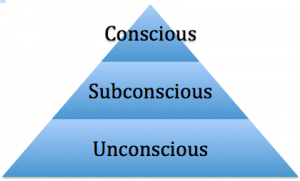How to Cope with Exam Stress
Raise your hand if you’ve ever felt worried, anxious or nervous about taking exams? Let’s face it, at some point we all have felt those pangs.
These feelings can happen not only when facing exams but also in a multitude of settings. Perhaps years ago when you were waiting outside the teacher’s office or asking someone out, we have all felt nervous at some point in our lives. The issue though is when your unconscious feelings start to hijack your conscious mind and potentially affect the exam result you want. Well, you’ll be glad to hear that there is an alternative to letting those feelings of anxiety, nerves and perhaps even dread take over.
Learning some simple and very powerful Stress management techniques can allow you to be more relaxed and confident. Many of you have probably heard the phrase ‘auto pilot’, but have you thought of it being something that we all do everyday?
There are three levels of consciousness: conscious, subconscious & unconscious.
- Your conscious mind is what you are currently aware of i.e. your location, thoughts and perceptions.
- Your subconscious mind deals with all the information that you are not currently aware of but can easily recall i.e. a friends phone number.
- Your unconscious mind holds amongst other things your fears, what drives you, instinct, and phobias, i.e. being scared of spiders. You don’t know exactly why you are afraid of spiders and why you keep reacting the way you do – and this is an autopilot/unconscious reaction.
All your behaviours have a positive intention. For example, you run away from a spider because your unconscious mind wants to keep you safe. Take another example of getting up in the morning. We all have routines: some of you will have a shower, get dressed and then clean your teeth, whereas others will clean teeth, shower and then get dressed. If you try changing the pattern of your morning routine, it may certainly feel weird to start with. But that’s the thing – it feels strange to start with but eventually a new unconscious pattern will emerge.
Looking back to my own school exams, I remember getting sweaty palms, my heart rate would go crazy and I would just feel sick at the thought of them. This would increase when stood outside the exam room waiting to go in. What was happening to me, I now know, was happening to a lot of my friends with quite similar outcomes.
What I was experiencing was what is called a cycle of emotional hijacking – my unconscious mind was trying its hardest to protect me. At some point in my earlier childhood I may have experienced a similar situation and I had reacted in this way. It provided me with a positive conclusion and therefore my unconscious mind set up this behaviour pattern. Each time I faced a similar situation my unconscious mind would kick in, even if it wasn’t giving me the effect I now wanted. It was just similar enough to be recognised as a familiar pattern for my unconscious to take over. But all is not lost. You can learn new, more beneficial behaviours.
This technique for coping with exam stress would have really helped me back then and I actively use it now. A really easy way in which you may be able to reduce your exam anxiety is as follows:
- Think of the last time you were feeling anxious about exams. If you could start to feel how you felt at that moment, imagine yourself in that situation.
- Once you have that picture in your mind imagine placing that picture onto a screen in front of you. On a scale of 1 – 10, where 1 = calm and 10 = feeling sick and mind like jelly, where would you put yourself on that scale?
- As you watch the image on the screen in front of you, focus on how you are feeling and where the feeling is located in your body. Some people say the feeling is in their stomach/head/shoulders, it doesn’t matter where it’s located only that you become aware of it. Then ask yourself, if that feeling was spinning in a direction, which direction would it be spinning in?
- Notice what changes when you begin to spin that feeling in the opposite direction.As you spin the feeling in the opposite direction, and make the spinning a little faster, does the feeling of anxiety increase or get weaker? If it gets weaker, keep increasing the rate of spin until you get down to the next point on the scale (1-10). Notice how the feeling is getting weaker with each increase in speed. Continue to do this until you reach point 1 which equals a state of calm. If it gets stronger, slow the spin down a little. Notice how the feeling is getting weaker each time you reduce the speed. Continue to do this until you reach point 1 which equals a state of calm.
It doesn’t matter which direction the feeling is spinning in, only that you notice what happens when you reverse it and spin it faster or slower. The brilliant thing about this technique is that you can take back control by knowing which direction you have to spin the feeling to make the feeling weaker. This gets you out of autopilot and therefore reduces the feeling of anxiety.
The stress that often surrounds exams is likely to affect more than just the student – techniques such as this can help enhance the general household environment.
Why not give it a go and see how it works for you.
Barbara Cross, Cognitive Freedom









 See More Genuine Reviews
See More Genuine Reviews